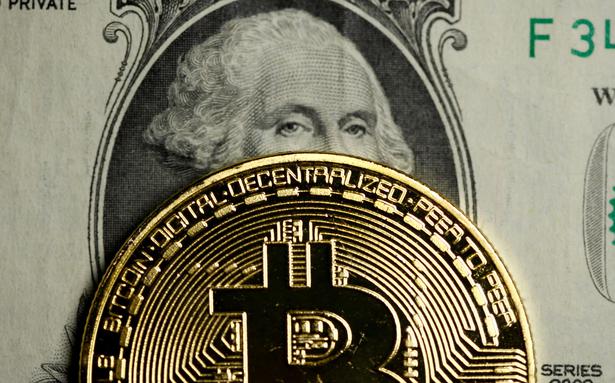A transition to cryptocurrencies by the Central African Republic and El Salvador is fueled by a drive to sidestep inflationary pressures and move away from colonial monetary mechanisms. However, prerequisites such as the internet and digital financial literacy make it difficult to advocate for inclusivity
A transition to cryptocurrencies by the Central African Republic and El Salvador is fueled by a drive to sidestep inflationary pressures and move away from colonial monetary mechanisms. However, prerequisites such as the internet and digital financial literacy make it difficult to advocate for inclusivity
The story so far: On April 27, Central African Republic (CAR) became the second country after El Salvador to introduce bitcoin as legal tender. President Faustin-Archange Touadera said the measure will enable “strong and inclusive growth” and put the African country on the “map of the most courageous and visionary countries in the world”. With a population of 5 million, the Central African Republic is one of the poorest and most economically vulnerable countries in the world. According to World Bank estimates as of July 2021, 71% of the population lived below the international poverty line of $1.90/day.
The International Monetary Fund (IMF) said making the unregulated asset legal tender poses major legal, transparency and economic policy challenges. Bloomberg reported. The global body said in an email response, “IMF staff are assisting regional and CAR authorities in addressing concerns raised by the new law.”
Recently, several countries have considered enacting laws regulating the use of cryptocurrencies, particularly those that do not have well-designed currency mechanisms and are experiencing persistent inflation. IMF Managing Director Bo Li said in April that the unregulated asset had witnessed “significant action” in Kenya, Nigeria, South Africa, Ghana and Tanzania.
Geopolitical currents and the dependence on various currencies from the colonial era provided further impetus.
Cryptocurrencies are highly volatile assets and have gained popularity due to their unregulated nature. At the time of writing, Bitcoin fell to its lowest level since July 2021 at $29,731. In November 2021, it was an all-time high of $68,000. This volatility has raised concerns about the potential impact on a country’s macroeconomic stability, particularly in countries with weak socioeconomic fundamentals.
What about geopolitics? Where is the “colonial baggage”?
The two countries that legalized bitcoin as legal tender do not have their own currency.
El Salvador uses the US dollar and the Central African Republic franc is the common currency of 14 African nations – Benin, Burkina Faso, Ivory Coast, Guinea-Bissau, Mali, Niger, Senegal, Togo, Cameroon, Congo, Gabon, Equatorial Guinea and Chad. Together, these countries – most of which were once French colonies – make up the “Franc Zone”. France guarantees the convertibility, i.e. the exchangeability of a currency with other world currencies. In other words, francs can be exchanged for foreign currencies through the Paris foreign exchange market, creating a dependency on the European country.
In addition, all coins and banknotes are printed according to the instructions of the African central banks under a manufacturer agreement with the Bank of France. According to a blog post from the London School of Economics, “It is a colonial currency that arose out of France’s need to promote economic integration between the colonies under its administration and thus control their resources, economic structures and political systems.” The blog says that the two central banks in the region, namely the Central Bank of West African States (BCEAO) and the Bank of Central African States (BEAC), are required to deposit 50% of their foreign exchange reserves in a special French treasury account’. The French Ministry for Europe and Foreign Affairs claims that the mechanism provides a stable economic framework for the implementation of economic policies in these regions. All countries are free to opt out of the mechanism.
For some countries, the move to regulate and allow cryptocurrency was a means to circumvent the sanctions and embargoes imposed on them, such as B. Cuba. As a result of the US-imposed blockade, Cubans are cut off from global financial systems and unable to purchase financial instruments such as debit or credit cards, and are struggling to go abroad and source materials and services from outside. The Caribbean country issued regulations in April for crypto providers to obtain a license to continue providing crypto-related services.
experts told Bloomberg that a possible explanation for Touadera’s announcement could be his involvement with Russia. In 2020, Putin sent paramilitary groups to protect Touadera from rebel groups in the country.
Can Cryptocurrency Reverse Economic Problems?
There may be a direct link between inflation and countries that allow the use of cryptocurrencies. Cryptocurrencies have the potential to turn inflationary headwinds from legit currencies into tailwinds. Take, for example, a situation in an inflationary economy where the price of flour has gone from $1/kg to $3/kg. The purchasing power of the dollar suffers from the rise in prices. However, Bitcoin, reportedly up 10% the day before and unaffected by local conditions, would give the consumer greater purchasing power and dodge inflation.
This potentially direct relationship is particularly relevant to CRA. According to the IMF, headline inflation in the country is expected to accelerate to 4% in 2022 due to rising food and fuel prices. Food, fuel and budget support shocks are also expected to weaken the country’s trade balance.
Earlier this year, the IMF asked El Salvador to limit the amount of unregulated wealth. “They (IMF Executive Board) emphasized that there are major risks to financial stability, financial integrity and consumer protection associated with the use of Bitcoin, as well as the associated tax contingencies,” their assessment reads.
Despite a strong economy, El Salvador’s public debt remains high. “This situation is unsustainable – it crowds out private investment and limits resources for social and infrastructure spending, all impediments to growth,” the fund had said. It added that the country would essentially need more private investment and healthier public finances.
In this case, and also relevant to other economies of this type, it becomes imperative to fully hedge the unregulated asset to protect it from uncertainty. Risks related to volatility, cybercrime and theft put households and businesses at risk of losing large amounts of wealth.
Countries like CRA would face risks associated with paying taxes in cryptocurrencies if taxes are paid with crypto assets but spending remains in local currency. For example, the government collects $100 worth of taxes using crypto denominations, but a slide down in the asset makes $40 available to spend.
Additionally, unlike stocks or currencies, cryptos are not subject to any particular mechanism and are speculative assets. Hence, central banks would have no reference point to set their interest rates in line with their domestic requirements. The IMF argues that the underlying anonymity in crypto transactions can create certain data gaps for regulators. Blockchains can help track the transactions, but not the parties involved. Therefore, they could potentially be used for money laundering, terrorist financing, or other illegal activities.
Are there arguments for financial inclusion?
Leaders in both El Salvador and the Central African Republic have cited financial inclusion as the primary reason for granting Bitcoin legal tender status.
Internet penetration has helped unregulated assets become popular. Scaling internet access is also the key requirement for bringing the unregulated good into the mainstream. Banknotes do not require such a requirement and are therefore widely used. According to the International Telecommunication Union, 29.5 million people on the African continent used the internet in 2020 – about 22.7% of the total population. According to the World Bank, just under 10% of the population in the Central African Republic and 55% in El Salvador had access to the internet.
Another challenge for the declared goal is access to financial services and the associated literacy. About 70% of people in El Salvador were unbanked, while only 14% in Central African Republic were part of the mainstream banking structure. Given the low level of financial and related digital literacy and the general gender inequality in the Central African Republic, a case for inclusion seems cumbersome.



